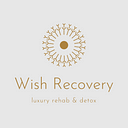What are the Stages of Recovery?
The Six Stages of Change — popularized by the Transtheoretical Model developed in the late 70s — has become a measuring tool in behavioral health settings. It helps people embarking on intentional change. These self-changers use the stages to navigate through the process of addiction recovery.
The Six Stages of Change — popularized by the Transtheoretical Model developed in the late 70s — has become a measuring tool in behavioral health settings. It helps people embarking on intentional change. These self-changers use the stages to navigate through the process of addiction recovery.
Providers attempt to align relevant interventions with the identifiable stage of an individual’s progress. In that way, individuals can move more successfully and with fortified self-confidence to the next stage of change, until they finally make it where they want to be — sober, healthy and accomplished.
The first stage is the “pre-contemplative” stage, when the individual is still unaware of the harmful effects of their substance use, although other people around them can see the consequences.
Stage two is the “contemplative” stage, in which the individual considers whether their substance use is adversely affecting them. There is a possibility that they will consider cutting back on or stopping their use of drugs and alcohol.
When a person reaches stage three, the “preparation” stage, they are no longer in need of convincing. Instead, they research and gather information about the change they want to make in their lives to be sober. Then, they look for supportive information that answers questions like:
- What are the different treatment options?
- What does recovery mean?
- How long does it take?
The fourth stage is “action.” The person feels self-confident during this stage of recovery, thinking they can change and make positive strides towards sobriety. Depending on one’s needs, one may decide to:
- Enroll in an outpatient treatment program
- Live in a sober living community
- Enter a rehabilitation facility (rehab)
- Undergo partial hospitalization (day treatment program)
People who are less inclined to conventional treatment may find it helpful to join 12-step mutual aid groups like Alcoholics Anonymous (AA) or Narcotics Anonymous (NA). However, some prefer self-help groups for recovery that don’t follow the 12-step model, such as Secular Organizations for Sobriety (SOS) or Women for Sobriety.
Still, others may not want clinical intervention or peer support. Instead, they may favor options like SMART Recovery or Self-Managed Recovery Training, a program designed to help self-changers gain independence from addiction and addictive behaviors.
The next stage is “maintenance.” A person in this stage avoids temptation and is unaffected by triggers. Maintaining sobriety is possible with the help of their community resources, their families, or other sources of support. In addition, having coping skills helps them avoid drug and alcohol use.
However, there is still a chance of relapse. That’s why the “maintenance” stage also involves developing an effective strategy to avoid relapse and ways to overcome it. This stage is a significant milestone for many people. It is where the stages of change go no further and enter perpetuity. Thus, maintenance becomes a lifetime undertaking for them to prevent relapse and remain sober.
The sixth stage represents the preeminent goal for most people recovering from a substance or alcohol use disorder. However, the “termination” stage is not often identified in health-promoting programs because of its rarity to see anyone reach such heights. Instead, self-changers and change facilitators accept “maintenance” as the ideal stage of behavioral change for those in recovery to ascend to.
All the stages culminate at the “termination” stage because by this point in recovery, a person has complete confidence in their ability to dissolve and sever any lingering desires that may taunt, trick or tease them into using or drinking again — no matter how hidden and silent those attachment could be. They are all irrevocably gone and pose no threat.
Recovery goes beyond abstinence. Getting help is easy. Services are abundant and usually only a call, visit, text, click or chatbot away. Don’t delay. Your new behaviors in recovery can begin with the constructive, life-changing decisions you make today.
Originally published at https://wishrehab.com
